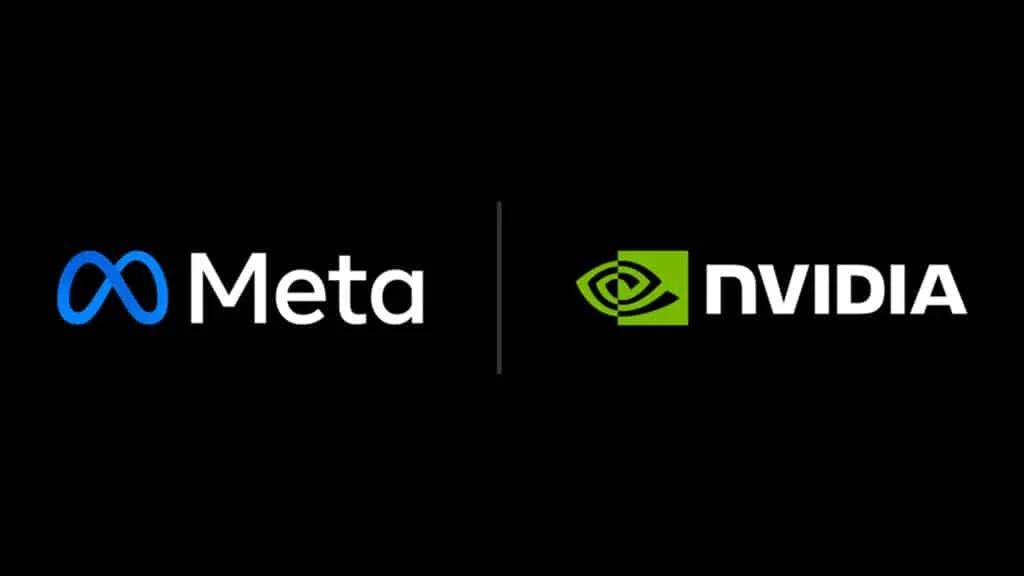On this episode of the Six Five On the Road, host Daniel Newman is joined by Dell Technologies‘ Yvonne McGill, CFO, for a conversation on how Dell is navigating the changing tech landscape, especially with the advent of AI, and what this means for the company’s future growth and value creation.
Their discussion covers:
- Dell’s strategy for innovation and progress in the current tech era.
- The bullish outlook on Dell Technologies and its distinguishing factors.
- The impact of AI on financial performance from a CFO’s perspective.
- Insights into Dell’s recent investor community attention and stock momentum.
- Yvonne McGill’s unique approach to her role as CFO nearly a year in.
Learn more at Dell Technologies.
Watch the video below, and be sure to subscribe to our YouTube channel, so you never miss an episode.
Or listen to the audio here:
Disclaimer: The Six Five Webcast is for information and entertainment purposes only. Over the course of this webcast, we may talk about companies that are publicly traded and we may even reference that fact and their equity share price, but please do not take anything that we say as a recommendation about what you should do with your investment dollars. We are not investment advisors and we ask that you do not treat us as such.
Transcript:
Daniel Newman: Hey, everyone, The Six Five is on the road. We are here at Dell Technologies World 2024 in Las Vegas. It’s a big week for Dell Technologies, and for AI. We are seeing AI in infrastructure, in services, and of course we saw a big pivot in AI and the next generation of client and PC. It’s an exciting time, we’re having a lot of conversations here throughout the week, and I’m excited about the one we’re about to have here with Yvonne McGill, CFO of Dell Technologies. Yvonne, welcome.
Yvonne McGill: Well, thank you. Thank you for having me today.
Daniel Newman: It is really great to have you here. We chat somewhat on the quarter, that’s a cadence. As industry analysts, I always say we don’t set buy targets, we don’t set price targets, but oftentimes we are uniquely qualified to look at a company from left to right. I always say that while in short terms, you have macro, you have geopolitical, you have things like interest and inflation that might dictate the way a company’s stocks are priced or the business strategy over long time, though over the long time, the company’s products, its services, its commitments, its people, and its culture often are the real indications of how successful a company will be and whether they’re great companies to invest in. As an industry analyst, I like that I get to look at it that way, and I’ve always really enjoyed the conversation, so thanks so much for spending some time with me.
Yvonne McGill: Yeah, thank you, and always appreciate your perspective.
Daniel Newman: You’re in an interesting moment, Yvonne. It’s a reinventing moment. I’ve talked to some of your peers and some of the other executives here at Dell, and I’ve used the word great reset in a really positive way. AI is resetting market positions. Every company has a new chance to start, launch new products, create new experiences, deliver new services, but it’s also creating new operating models, a new way to have to think about the financials of a company, how to implement and put capital to work the right way. I’d love to hear a little bit just about how you’re responding to this moment in history in the inflection with AI.
Yvonne McGill: Sure, well, I do love this moment. It’s our 40th anniversary, and I feel like it’s the beginning of a new journey. AI is part of the driver, but it’s built on that foundational layer that we’ve put together for over the last 40 years. I love our portfolio. I love how we’re positioned from the beginning, the client device, but all the way through to storage, and then we’ve got the AI phenomenon coming, and it’s just at the beginning. That’s so exciting about where we are and where we’re headed, and I really do appreciate having that historical background, right? But I love that we’re never done, and we’re always developing and always moving forward, and so this is the beginning of the next part of the journey.
Daniel Newman: Yeah, I mean, in your seat, you’re always looking at how do we create return on equity? How do we create return on invested capital? How do we put a dollar to use to drive the growth of the company?
Yvonne McGill: That’s right.
Daniel Newman: And right now, AI helps in all those different categories. There’s a real pragmatic part of AI on that’s like, “Hey, we’ve got a product.” Let’s face it, we have this huge, I won’t call it a front loading, but there is this really big arms race among the largest enterprises in the world. They’re investing heavily. And then you’ve got industries that know that it can remove friction, it can deliver better customer engagement, and they’re making big investments. The numbers have been reflected in Dell’s past few quarters, you’re getting margin expansion, and of course you guys have always been really diligent for a long time in the way you operate, so even when markets have been tougher, you’ve performed well. But everyone at Dell, and I’ve been with you guys for a number of years on calls, and it hasn’t always been as bullish. There’s always been a very positive, it’s always been optimistic, you’ve built a company, ran to $100 billion in revenue.
Yvonne McGill: That’s right.
Daniel Newman: But the bullishness is perhaps the most I’ve ever seen. What is setting this view and creating this momentum within the company these days?
Yvonne McGill: It’s a great question and we are bullish. It’s very exciting, and I feel like it’s the beginning of, it’s said the next 40 years. If I look at, we laid out our long-term value creation framework, long-term value creation framework in October last year. We talked about three to 4% revenue growth. We talked about 8% or more, non-GAAP diluted earnings per share growth, so that’s pretty exciting. But even more exciting, we talked about the return to shareholders. We talked about our net income to free cash flow of 100% or greater, and then we talked about returning that to our shareholders, 80% or more return to shareholders, whether it’s in a dividend or in share repurchase.
But why is that so exciting in where we are now with AI? It’s because I can see us absolutely delivering on a lot of the pluses we talked about. That was our framework, but we said we would do even more, and I see that even more very, very clearly now. I see it for now even more, but I know we’ll define the future as we go. But our portfolio positions us so differently than really anyone else in the industry from client all the way through the stack. Michael has built this company, we’ve been successful for 40 years and he’s built it for now. The vision is quite clear on how we’re differentiated and how we’ll continue to perform.
Daniel Newman: Yeah, you’ve gotten some really positive tailwinds from AI. You were well positioned. I think you could argue that nobody was as perfectly positioned as could have been. You could have been, any company could have stacked up on maybe a couple 100% more GPUs or whatnot. But of all the companies, and I track them all, definitely. And by the way, even when you don’t give numbers, these folks are so creative. I call it AI Twitter, they figure out how to go out and back out numbers and figure out.
Yvonne McGill: No comment.
Daniel Newman: Yeah, of course not, I would never ask you to comment. But it’s been fun to watch how people have, because what everyone’s looking for is where there’s the obvious, like I said, Jensen Huang has come to your events. He’s gotten on stage, and by the way, he went to GTC, walked the floor, and the video went absolutely viral.
Yvonne McGill: It did.
Daniel Newman: Of him pointing at Dell and saying, “Anything you need for AI, you can get it from,” and I.
Yvonne McGill: That was wonderful.
Daniel Newman: It really was.
Yvonne McGill: Yeah.
Daniel Newman: And the parabolic market response and 100% up year to date.
Yvonne McGill: Yes.
Daniel Newman: So AI is this tailwind. I mean, I see it both inwardly, I’ve heard a little bit about the company story.
Yvonne McGill: Right.
Daniel Newman: The company has talked about how it’s using it itself, it’s using it in its service models, it’s using it in financial modeling. I’m sure you’re going to be looking at finding efficiencies.
Yvonne McGill: Absolutely.
Daniel Newman: Maybe I’ll break it into two parts. Talk a little bit in your world in leading the financial vision and operations of the company, how you see AI playing a role in creating a stronger model going forward.
Yvonne McGill: Sure. As we look at AI and look at that opportunity that we see, it’s actually given us the opportunity to really re-examine everything we’re doing. Really deciding what should we do? How should we spend our time? And then how do I rebuild the foundational layer so that I can then enable AI on top of it to be even more efficient? We’re looking at everything from engineering. How can I bring product to market faster leveraging AI? I think of areas like I have responsibility for around customer care for example, how can I solve customer issues or questions faster with higher customer satisfaction? We’re doing that now. How do I do things in a more automated fashion so that I can spend my time on those more complex areas that need more collaboration, more focus.
It’s really across our entire portfolio that we’re leveraging this, but we’re doing it internally. When we’re talking to customers, we’re talking to them about how are we addressing it? How are we going after the opportunity that AI can drive from an efficiency standpoint? But it all starts with examining the state of your business and then prioritizing because there’s so many ideas out there on how you can do things differently. You can’t do them all simultaneously. Where’s the biggest value add, and how do you focus on that? We’re leveraging it, I mentioned in engineering, in our go-to-market sales in, I talked about some of the finance opportunities there too. It’s an all-play.
Daniel Newman: It’s bountiful.
Yvonne McGill: It is.
Daniel Newman: I’ve used this quote, remember when this wave of gen AI hit, there was a bit of this tension of CEOs and CFOs talking about the impact it might have on workforce. We’ve heard CEOs, like Jensen I mentioned come out and say maybe people won’t need to learn to code, which is a big pivot from many of us with children who said, “Go learn to be a software engineer.” Bill McDermott today actually made some really interesting comments about how in 1966 or something, 40 years ago, they did a study and they thought that automation and different technologies, industrial revolution was going to, all the executives would have jobs, but most of the employees wouldn’t have jobs.
Yvonne McGill: Right.
Daniel Newman: And we’re tens of millions of jobs later, so I don’t think we know yet 100%.
Yvonne McGill: We don’t.
Daniel Newman: But I do think design with and design for AI, and I often talk, Yvonne, about this prune to grow idea, meaning that right now with AI, someone in your chair needs to be looking at the operational efficiencies in a way that’s not culturally damaging, pragmatic, and you want to get your best people doing their best work.
Yvonne McGill: That’s right.
Daniel Newman: Also, figuring out where to take out costs that AI can help, but those dollars in the best companies, I believe will be reinvested into growth, not saved just to give back to shareholders or put in the pockets of executives.
Yvonne McGill: That’s right.
Daniel Newman: Got a few minutes left, I want to get your take on the investor community. I know X or Twitter’s not a litmus test for how, but it does have a really interesting investing audience. Dell historically, when I’ve shared or when I’ve commented on it, it didn’t draw a ton of emotion or reaction. I’m telling you, it’s changed so much. We talk about the bullishness inside, we talk about the almost, you don’t want to be a meme stock, but almost like becoming really interesting. You’ve really seen your growth, your value, you’re kind of everything now, what do you think is driving that? I mean, is it just AI?
Yvonne McGill: Absolutely, not just AI. AI is certainly part of the driver, but I really think it’s the recognition of the portfolio, how we’re differently positioned for today and for the future. I talk about how AI is bringing us different discussions, but we’re having them with the CEOs, right? It’s a different discussion set, and it’s about how do companies reinvent themselves? How do they leverage AI in how they’re going to drive the outcomes that they’re seeking? I love that. But Dell is differently positioned now, and I appreciate the recognition that we’ve deserved for so very long finally being seen. But I feel like there’s so much more value that we will drive for our investors, for our shareholders, for our customers and beyond.
Daniel Newman: No, that’s fair. I mean, we live in a different world. I mean, there’s no downtime for investing anymore, there’s no downtime for markets, but it’s been very positive as someone who’s outspokenly been very positive about the breadth of your portfolio, the potential in where the cloud’s going, that it’s not all going to go to public cloud. We’ve called this for a long time.
Yvonne McGill: Right, multi-cloud world.
Daniel Newman: Obviously seeing that you guys have diversified away from risk areas with things like infrastructure and services, because PCs are so boom and bust. Managing well supply chain cycles is something I’ve always been impressed by in that period of time, Yvonne.
Yvonne McGill: That’s right.
Daniel Newman: You guys did… We compared how you did to others in your space, and you did much better even when the numbers and metrics got complex, you continued to outperform the expectations you were setting. You’re a year in now to the role. Let’s end on this note. How do you think about the role, the CFO role, the opportunity? Because not only are you a year in, but it’s been a very positive, and there’s been both external forces, but also internal forces. What are you thinking about the role going forward?
Yvonne McGill: I am so excited about Dell Technologies, I’m so excited about being the CFO. I’ve been at the company almost 27 years, and it feels so fresh and so new, and not that we haven’t accomplished so much over the last 40 years, but that we see how we are differentiated going forward, and so I’m super excited. What’s even more exciting is the markets starting to recognize, and I say starting because there’s so much more, so much more to go, but recognizing how differentiated we are.
Daniel Newman: Yeah, it’s very exciting. I’ve really enjoyed watching your tenure so far, and I look forward to seeing how you drive into the future. You can tell Michael’s just absolutely thrilled, and he’ll be joining us here on The Six Five On the Road as well so stay tuned for that.
Yvonne McGill: Right.
Daniel Newman: But Yvonne, thanks so much for joining me here today.
Yvonne McGill: Thank you, I so appreciate it.
Daniel Newman: Look forward to talking more soon.
Yvonne McGill: All right, thank you.
Daniel Newman: All right everyone, hit that subscribe button. Join us for all of our coverage here of Dell Technologies World 2024. This is The Six Five, we are On the Road in Las Vegas, Nevada, but I’ve got to go. So subscribe, stay tuned, we’ll see you all later.
Author Information
Daniel is the CEO of The Futurum Group. Living his life at the intersection of people and technology, Daniel works with the world’s largest technology brands exploring Digital Transformation and how it is influencing the enterprise.
From the leading edge of AI to global technology policy, Daniel makes the connections between business, people and tech that are required for companies to benefit most from their technology investments. Daniel is a top 5 globally ranked industry analyst and his ideas are regularly cited or shared in television appearances by CNBC, Bloomberg, Wall Street Journal and hundreds of other sites around the world.
A 7x Best-Selling Author including his most recent book “Human/Machine.” Daniel is also a Forbes and MarketWatch (Dow Jones) contributor.
An MBA and Former Graduate Adjunct Faculty, Daniel is an Austin Texas transplant after 40 years in Chicago. His speaking takes him around the world each year as he shares his vision of the role technology will play in our future.












